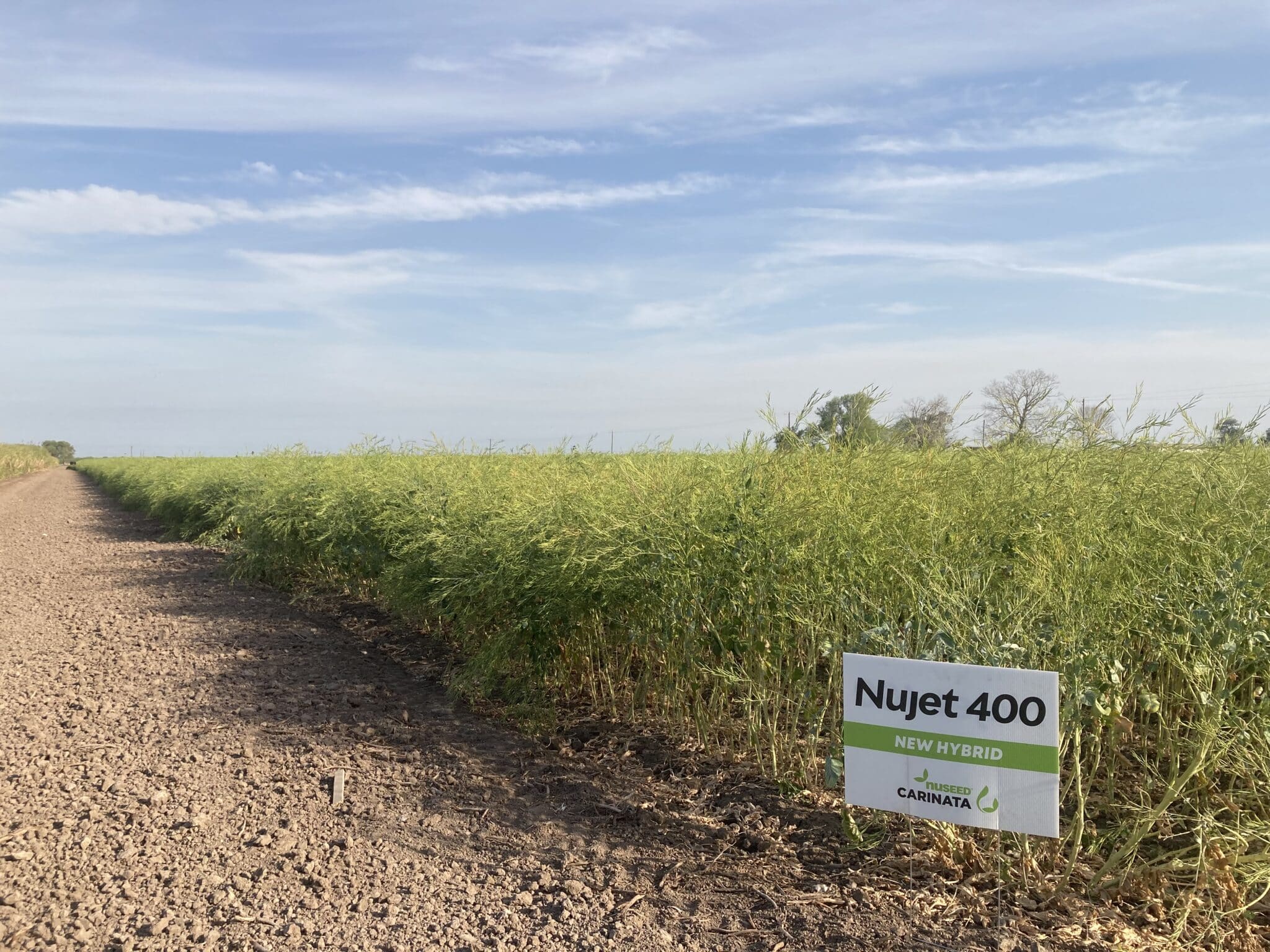December marks #WorldSoilDay, an international day focused on the importance soil has to food production, and life on earth. Our Nuseed Carinata team is working with local U.S. growers in the Southern United States to contract produce Nuseed Carinata to regenerate soil, and generate additional income by supplying non-food, certified sustainable, low carbon renewable oil feedstock.
“We are working to make everyday Soil Day by planting Nuseed Carinata as a harvested cover crop between main crops to help reduce erosion,” explains North America Marketing Leader, Roger Rotariu. “The immense biomass above ground and the root structure below ground sequesters carbon plus improves soil and growing conditions.”
Sustainable Agriculture Research and Education (SARE) credits planting cover crops with decreasing or almost completely eliminating erosion from agriculture fields, increasing rainfall infiltration to the soil layer, keeping nutrients like nitrogen and phosphorus in place preventing their loss into vulnerable waterways and increasing soil organic matter.
SARE adds that cover crops are able to increase soil organic matter not only by protecting the soil surface from erosion, but also adding biomass especially below the soil surface, and creating a habitat for micro organisms like fungi that contribute to the soil biology and provide more pathways for nutrient management in the soil ecosystem.
“We are changing the paradigm that cover crops are a cost to improving soil,” says Rotariu. “Nuseed Carinata is a non-food contract cover crop and growers are paid both for the crop they harvest and the sustainable practices they use to grow it.”
Nuseed Carinata is contract grown with certified sustainable farming practices between main crop rotations. The harvested non-food oilseed is then processed into low carbon renewable oil used to replace fossil fuels and petrochemicals. The co-product is a traceable non-GMO source of high protein meal currently used in feed.
